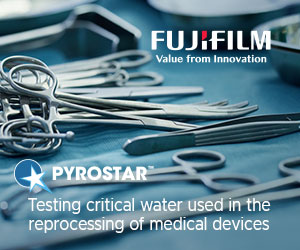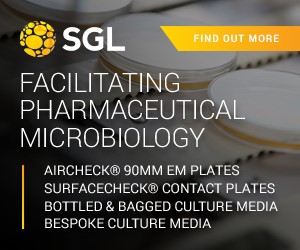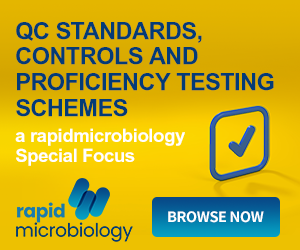Further Validation of Infectech's Identikit Technology for MAC
Infectech, Inc. has received further verification of its technology by Dr. Paul Hyman of Ohio State University. Dr. Hyman has achieved the identification of Mycobacteria Avium Complex (MAC) using DNA amplification in a much shorter time than can be accomplished with current methodology.
"M. avium could be detected significantly sooner than expected for normal culture techniques," stated Paul Hyman, Ph.D. Dr. Hyman is the primary investigator in Infectech's ongoing validation studies. "Sufficient DNA for PCR (gene amplification) could be extracted from paraffin that had no visible colonies on it," he continued.
Mycobacterium avium and Mycobacterium intracellulare are very similar bacteria which are usually grouped together. In the USA, they are usually described as Mycobacterium avium complex, or MAC.
MAC are routinely resistant to anti-tuberculosis drugs and there has been no standardized method for determining antibiotic sensitivity. In HIV/AIDS patients, MAC is usually diagnosed after symptoms appear. The diagnostic screen utilizes a blood test. At this time, mortality is very high and time to death is estimated at four months.
It has been estimated by world health authorities that more than 70 percent of AIDS patients harbor an MAC infection. It has been shown that MAC also causes opportunistic infections among non-HIV infected pediatric and elderly persons.
Infectech's technology allows for the rapid culturing and identification of MAC. It will also provide viable treatment options by testing the particular strain's antibiotic sensitivity. By using saliva or stool samples, this process could identify an infection as much as 10 months before the bacterium could be found in blood samples and well before symptoms begin.
Infectech owns 29 issued patents related to the rapid isolation, growth, identification and antibiotic sensitivity of disease-causing bacteria that includes Mycobacterium avium. Infectech's researchers discovered that certain grades of paraffin wax, when used in conjunction with a microscope slide, and combined with a nutrient broth, provides for the rapid isolation, growth and identification of various disease-causing bacteria.
Infectech has developed a diagnostic test kit based on this technology. The basic test kit consists of a glass slide coated with paraffin, which is used as a carbon source. The slides are incubated in a sample of almost any bodily fluid (a non-invasive sample of saliva is preferred) within a nutrient broth. This creates a semi-solid growth medium for the bacteria, which imitates its natural environment within a human or animal host.
The bacteria collect on the paraffin slide in 4-8 days. Testing can then be done to identify the species of bacteria. This testing can be done via acid-fast staining or through PCR gene amplification. Additionally, the bacteria can be cultured with antibiotics to test for specific sensitivities. Through the choice of different nutrient broths, each kit can be tailored to encourage the growth of a specific bacterium. The test kits are being designed to work on a class of bacteria that includes TB, MAC, Para-tuberculosis, Pseudomonas and Nocardia.
After some further validation work, Infectech hope to gain regulatory approval from the FDA, allowing for the marketing and distribution of the Identikits.
Source : Infectech, Inc. View Company Information
Posted on November 5, 2004






